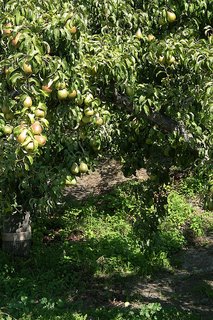THINK ABOUT IT
he was just doing what God sat before him.
- John Fisher
Christian inspiration and encouragement that is fresh, relevant and personal. Bible-based.


--St. Augustine
A REMARKABLE YOUNG MAN
Saturday I attended the funeral of Walker Best, a young man of numerous accomplishments. In high school he won many awards, two of which were valedictorian and Best All Around.” At A&M he continued his stellar academic performance as an honors student in biology. Walker’'s dream was to be a doctor and he had been invited to interview at 5 medical schools. He lacked only 6 hours to graduate in December and will be awarded his BS in Biology by A&M posthumously.
Yet what people most remember about him was his ability to love others. Over 1200 people attended his funeral. Several publicly shared memories of Walker, many others shared privately. Few talked about how smart he was but rather his joyful commitment to Christ, his radiant smile, his character, his caring hugs, his nonjudgmental nature. Person after person spoke of his kindness, his loyal friendship, and his ability to put others before himself.
LOVE GOD, LOVE OTHERS
Walker's philosophy was simple: Love God and love others. Found on his computer was also this injunction: "Love much, hate little."A slide show featured photos of family and friends, some from his personal computer. On the corner of several photos he had written some of his favorite scriptures, including Romans 12:40-43.
In view of the testimony of so many, it seems fitting to use Walker'’s photo to illustrate the love of God.
ROBERT WALKER BEST
August 22, 1983 - August 26, 2006
A life well lived
to the glory of God
Be devoted to one another in brotherly love.
Honor one another above yourselves.
Never be lacking in zeal,
but keep your spiritual fervor, serving the Lord.
Be joyful in hope, patient in affliction, faithful in prayer.
Share with God's people who are in need.
Practice hospitality
Roms 12:10-13
AGAPAO & PHILEO COMPARED
Phileo is distinguished from agapao in this, that phileo represents tender affection. The two words are both used for the love of the Father for the Son for the believer, and. of Christ's love for a certain disciple. The two verbs are never used indiscriminately in the same passage; if each is used with reference to the same objects, as in the examples just mentioned, each word retains its distinctive and essential character.
Phileo is never used in a command to men to love God, agapao is used instead. The distinction between the two verbs finds a conspicuous instance in the narrative of John 21:15-17. The context indicates that agapao in the first two questions suggests the love that values and esteems. It is an unselfish love, ready to serve. The use of phileo in Peter's answers and the Lord's third question, conveys the thought of cherishing the object above all else, of manifesting an affection characterized by constancy, from the motive of the highest veneration.
Strong's Concordance says that phileo is to be a friend to, to be fond of an individual or an object, to have affection that denotes personal attachment, sentiment, feeling. Agapao is wider, requiring a deliberate choice as a matter of principle, duty and propriety. The two are related, phileo being chiefly of the heart and agapao of the head.
IN SUMMARY
The crux of the matter is this: the love God requires from us is an earnest concern and interest in the well-being of another. This concern should motivate appropriate and beneficial action.
